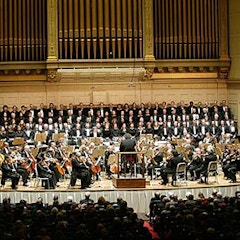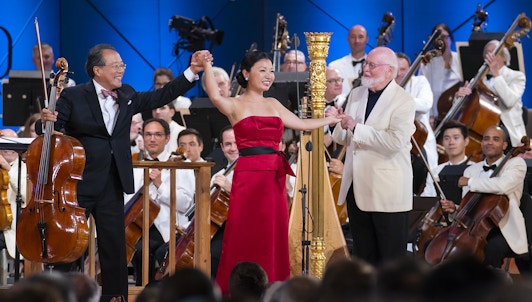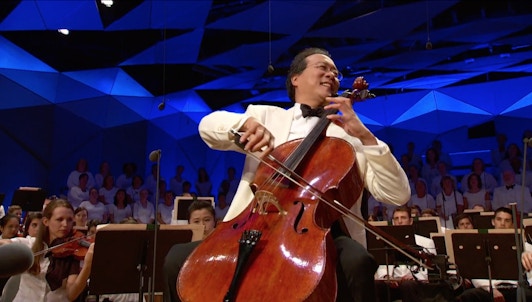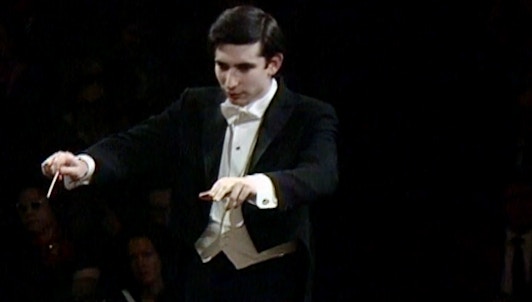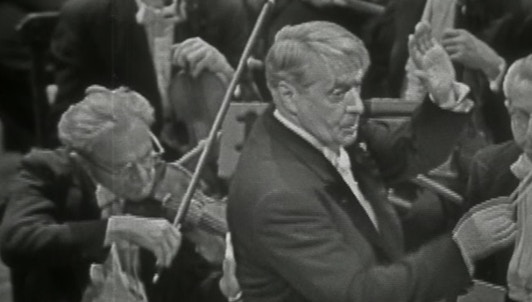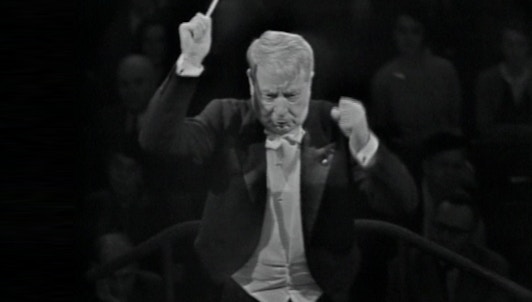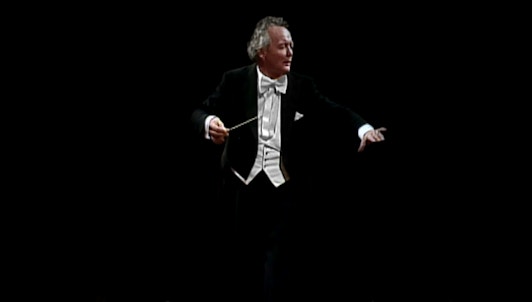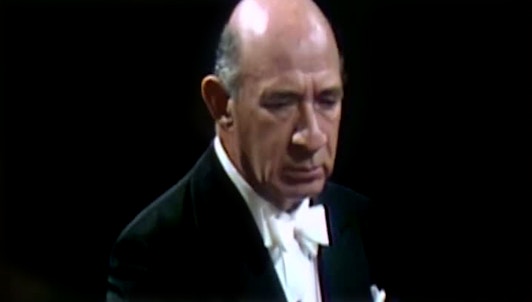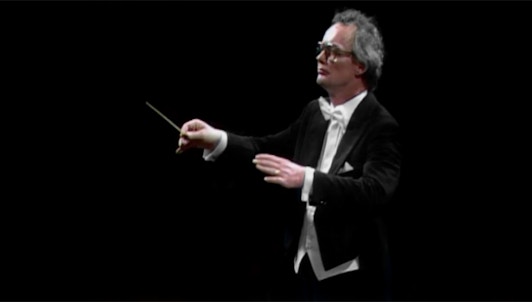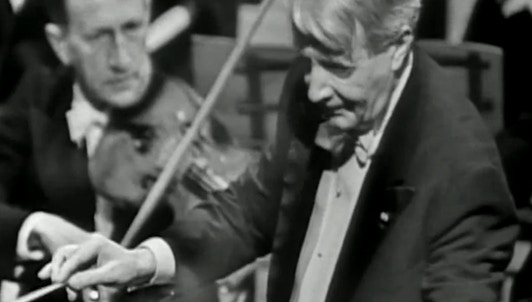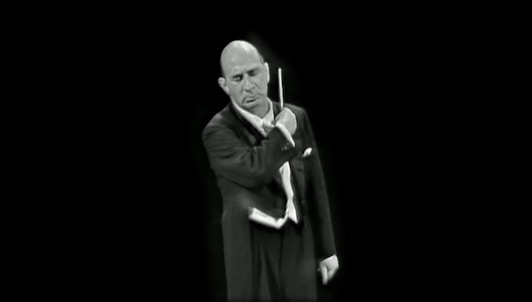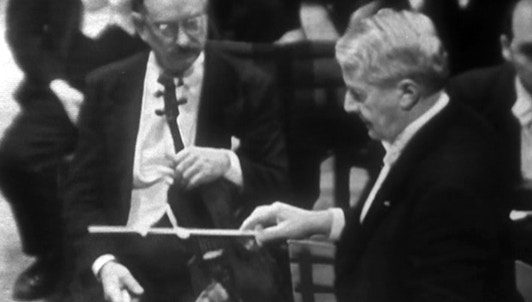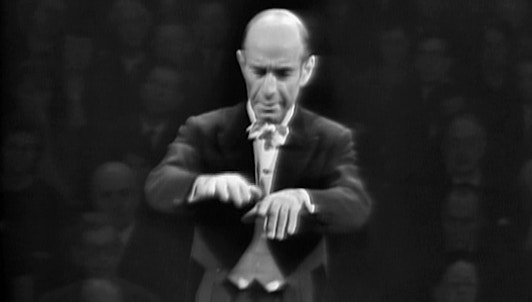Bostonian Henry Lee Higginson's long-standing dream of a great and permanent orchestra in his hometown became a reality in 1881. In October of that year, conductor Georg Henschel directed the first Boston Symphony Orchestra (= BSO) concert. For nearly twenty years BSO concerts were held in the Old Boston Music Hall. Symphony Hall, one of the world's most highly regarded concert halls, was inaugurated on October 15, 1900.
The first BSO concert, in the Old Boston Music Hall, was performed under the direction of Georg Henschel. Symphony Hall, one of the world's most highly regarded concert halls, was inaugurated on October 15, 1900. Henschel's tenure as Music Director ended in 1884. He was succeeded by a series of German-born and -trained conductors including Wilhelm Gericke, Arthur Nikisch, Emil Paur, Max Fiedler, and Karl Muck, who served two tenures as music director, 1906-1908 and 1912-1918. In 1915, the orchestra made its first transcontinental trip to San Francisco where it played thirteen concerts at the Panama-Pacific Exposition.
In 1918, Henri Rabaud was engaged as conductor. He was succeeded a year later by Pierre Monteux. These appointments marked the beginning of a French-oriented tradition that would be maintained, even during the Russian-born Serge Koussevitzky's time, with the employment of many French-trained musicians.
Serge Koussevitzky, legendary for his extraordinary musicianship and electric personality, began an unprecedented 25-year term as Music Director in 1924. During his tenure, the BSO began regular radio broadcasts and, in 1936, performed the first BSO summer concerts in the Berkshires. The orchestra moved into its permanent summer residence, Tanglewood, in 1937. Three years later Serge Koussevitzky, who passionately shared Higginson's dream of "a good honest school for musicians," founded the Berkshire Music Center (now called the Tanglewood Music Center).
Charles Munch succeeded Serge Koussevitzky in 1949. He continued his predecessor's practice of supporting contemporary composers, and introduced the USA to a great deal of music from the French repertory. During his tenure, the BSO toured abroad for the first time and the Youth Concerts series was initiated. Then, in 1962, Erich Leinsdorf took over the job of Music Director. He presented numerous premieres, restored many forgotten and neglected works to the repertory, and continued to extend the BSO's audience reach through recordings for RCA and televised concerts. The Boston Symphony Chamber Players were also founded during this time. William Steinberg succeeded Erich Leinsdorf in 1969. He conducted a number of American and world premieres, made recordings for Deutsche Grammophon and RCA, appeared regularly on television, and led the 1971 European tour.
Then, in the fall of 1973, Seiji Ozawa was named the BSO's Music Director. His 28-year tenure is the longest of any Music Director currently active with a major orchestra in the world. Seiji Ozawa has continued to solidify the orchestra's reputation at home and abroad, reaffirming the BSO's commitment to new music. Over the last quarter-century, the symphony has commissioned several works for the BSO's 100th Anniversary; a series of works celebrating the 50-year anniversary of the Tanglewood Music Center; and recently, pieces from composers including John Corigliano, Tan Dun, Henri Dutilleux, Lukas Foss, Alexander Goehr, John Harbison, Hans Werner Henze, Peter Lieberson, Yehudi Wyner, and Ellen Taaffe Zwilich. Under his direction the BSO has also expanded its recording activities, to include releases on the Philips, Telarc, Sony Classical/CBS Masterworks, Angel/EMI, London/Decca, Erato, Hyperion, and New World labels.
In 2004, James Levine became the first American-born music director of the Boston Symphony Orchestra. James Levine has received critical praise for revitalizing the quality and repertoire since the beginning of his tenure, including championing contemporary composers. Since becoming music director, the Boston Symphony has performed 18 world premieres, 12 of them conducted by James Levine. To be able to fund the more challenging and expensive of Levine's musical projects with the orchestra, the orchestra has established an "Artistic Initiative Fund" of about US$40 million. This is in addition to the current endowment of the orchestra, which is the largest of any American orchestra at about US$300 million.[6] Levine's current contract as music director is through 2012.
